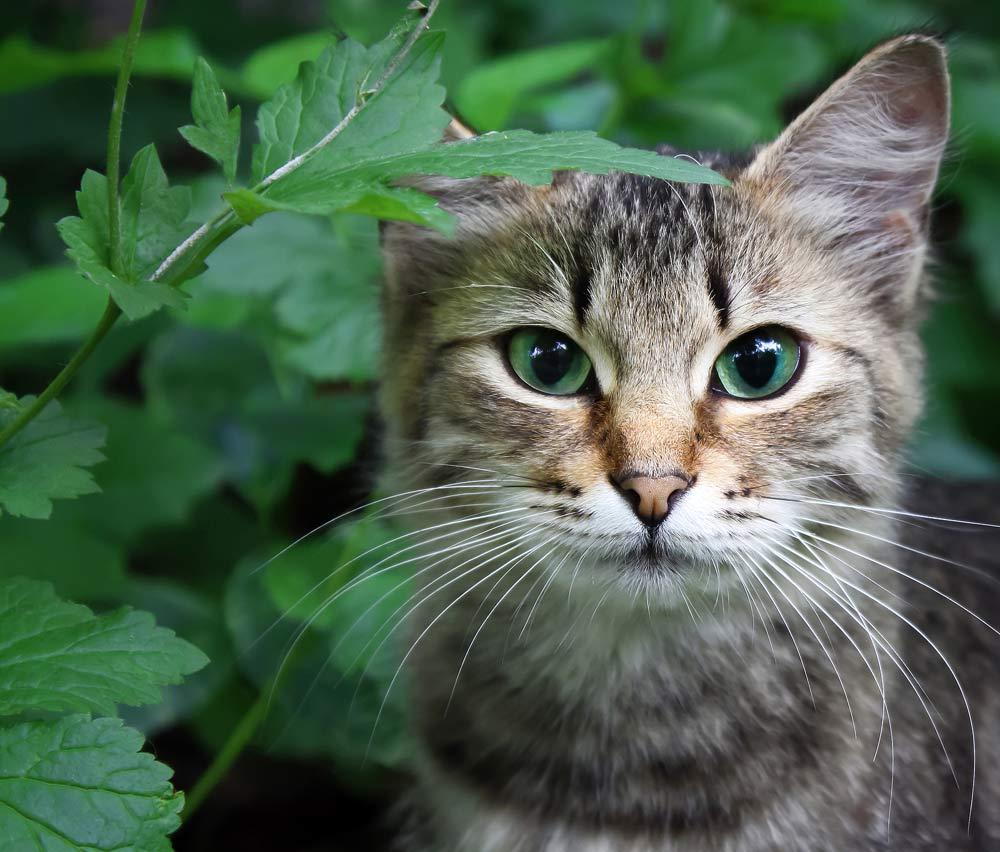Protecting Your Cat From Poisonous Plants

- posted: Aug. 14, 2020
Protecting Your Cats From Poisonous Plants
It is summertime. But before you plant those pretty seeds you found at the local hardware store; you may want to research them. Some plants are toxic to pets, and if you have cats you love like family, planting a toxic bloom could be disastrous. At New Hope Animal Hospital in Durham, North Carolina, we want to help you keep your furry friends safe and healthy. Here is what we recommend for keeping cats safe from poisonous plants.
Research Plants Toxic to Cats
Literally hundreds of plants are toxic to felines, even some of the ones you would never guess, including:
- Geranium
- Hyacinth
- Pothos
- Daffodil
- English Ivy
Most of the ones listed here are popular choices for windowsill plants, at least during specific times of the year. They bring beauty and fragrance to your home. But they could also make your four-legged feline ill. We recommend researching prospective houseplants before bringing them inside. You could spare yourself and your kitty a trip to our emergency room.
Knows the Signs of Plant Poisoning in Cats
Much of the time, cats instinctively know to stay away from plants that can make them ill. Occasionally, however, this isn't the case. Familiarize yourself with the signs of toxicity in cats, just in case your pet nibbles on the neighbor's tulips. Symptoms of poisoning in cats include:
- Vomiting and/or diarrhea
- Excessive drooling
- Redness, irritation, or rash around the mouth
- Respiratory distress
- Abdominal pain
Call New Hope Animal Hospital Should Your Cat Ingest Poisonous Plants
Prevention is the best way to keep kitties safe from poisonous plants, but preparedness comes in a strong second. Know what to do in an instant should you suspect your cat has eaten a toxic plant. Here is what our experts recommend.
Call your veterinarian first. Having someone on speed dial in the event of a pet emergency is the sign of a good pet parent. You may also want to wrap your kitty in a warm blanket to help prevent shock if they are unconscious or losing consciousness. Your vet may advise you to try to induce vomiting using a hydrogen peroxide solution, as well. When your cat needs veterinary care in the Durham, North Carolina area, call New Hope Animal Center first.

- posted: Aug. 14, 2020
Protecting Your Cats From Poisonous Plants
It is summertime. But before you plant those pretty seeds you found at the local hardware store; you may want to research them. Some plants are toxic to pets, and if you have cats you love like family, planting a toxic bloom could be disastrous. At New Hope Animal Hospital in Durham, North Carolina, we want to help you keep your furry friends safe and healthy. Here is what we recommend for keeping cats safe from poisonous plants.
Research Plants Toxic to Cats
Literally hundreds of plants are toxic to felines, even some of the ones you would never guess, including:
- Geranium
- Hyacinth
- Pothos
- Daffodil
- English Ivy
Most of the ones listed here are popular choices for windowsill plants, at least during specific times of the year. They bring beauty and fragrance to your home. But they could also make your four-legged feline ill. We recommend researching prospective houseplants before bringing them inside. You could spare yourself and your kitty a trip to our emergency room.
Knows the Signs of Plant Poisoning in Cats
Much of the time, cats instinctively know to stay away from plants that can make them ill. Occasionally, however, this isn't the case. Familiarize yourself with the signs of toxicity in cats, just in case your pet nibbles on the neighbor's tulips. Symptoms of poisoning in cats include:
- Vomiting and/or diarrhea
- Excessive drooling
- Redness, irritation, or rash around the mouth
- Respiratory distress
- Abdominal pain
Call New Hope Animal Hospital Should Your Cat Ingest Poisonous Plants
Prevention is the best way to keep kitties safe from poisonous plants, but preparedness comes in a strong second. Know what to do in an instant should you suspect your cat has eaten a toxic plant. Here is what our experts recommend.
Call your veterinarian first. Having someone on speed dial in the event of a pet emergency is the sign of a good pet parent. You may also want to wrap your kitty in a warm blanket to help prevent shock if they are unconscious or losing consciousness. Your vet may advise you to try to induce vomiting using a hydrogen peroxide solution, as well. When your cat needs veterinary care in the Durham, North Carolina area, call New Hope Animal Center first.
Visit Our Office
New Hope Animal Hospital
5016 Durham-Chapel Hill Blvd
Durham, NC 27707

